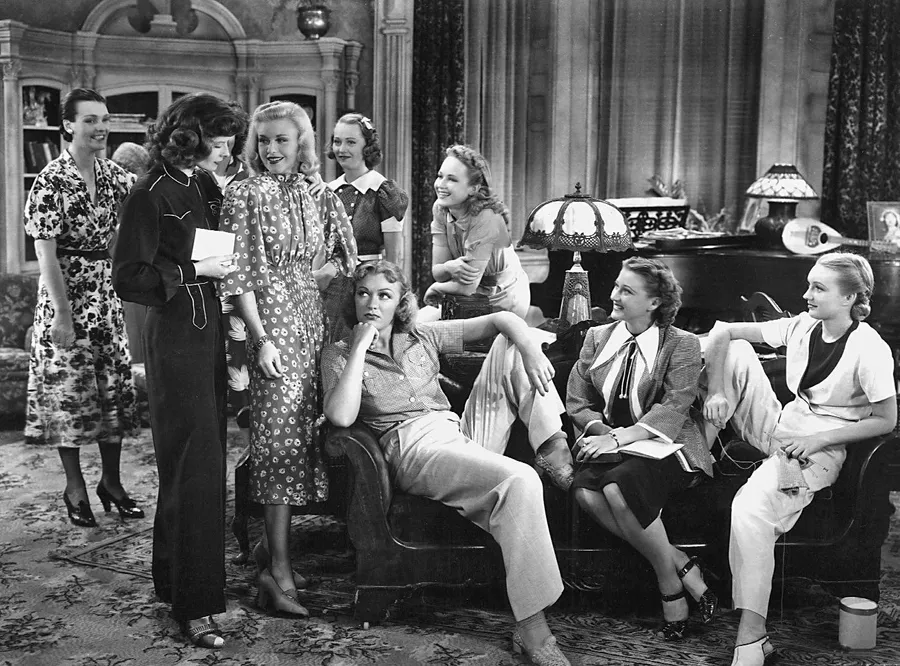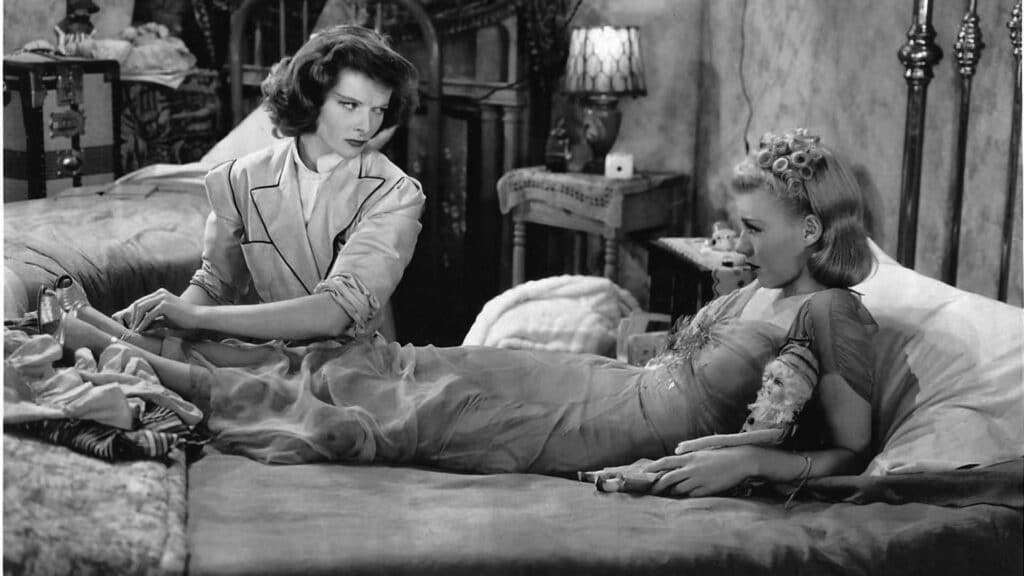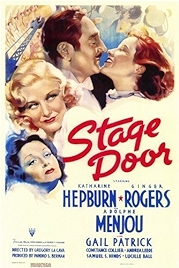Katharine Hepburn was at the height of the “box office poison” phase of her career when she made Stage Door in 1937. She’d won an Oscar only four years before but four flops in quick succession had turned RKO against her – she had to fight the studio to get star billing.
Ironically, amusingly, cannily, the story of Stage Door plays to the public perception of Hepburn as a snooty, entitled daddy’s girl who expected the world to do her bidding by casting her as the snooty, entitled rich man’s daughter breezing into the Footlights Club, a boarding house for actresses, and being taken aback when she doesn’t get the reception she feels is hers by right.
Terry (Hepburn) winds up sharing a room with Jean (Ginger Rogers) and starts to embark on the same heartbreaking round of auditions that all the many Footlighters do, in the hope of landing a role in a Broadway show, no matter how small. Enter Adolphe Menjou as a Harvey Weinstein of his day, an impresario keen to impress himself on any passing starlet.
In spite of the starriness of Hepburn and Rogers, Stage Door is more ensemble piece than star vehicle. Though Ann Miller is in it, briefly, she’s not yet a star when this is made (she’s only 14, in fact, but does get to dance a brief duet with Rogers). The same goes for Lucille Ball, playing another boarder, who was just about to break through but was also far from being famous.
What little plot there is concerns the efforts of Anthony Powell (Menjou) to get laid, and Terry to get a legitimate part. These converge in a new show that Powell is part-financing, in which the millionaire’s daughter gets a key role, in spite of the fact she’s obviously no good, which precipitates the film’s big tragic turn.
The play they’re rehearsing is obviously The Lake, the one for which Hepburn had received the notorious review in 1934 from Dorothy Parker. Hepburn’s performance ran “the gamut of emotions from A to B,” Parker had written. Hepburn takes it on the chin, playing Terry as a wooden actress repeatedly droning “the calla lillies are in bloom again” – a line from the play. All part of the joke and designed to reveal either a penitent Hepburn or one who could at least laugh at herself.
But never mind all this. Like the romantic subplot in a Marx Brothers film, none of this really has any relevance to anything. Instead concentrate on the real action, which is back at the boarding house where the young women trade gossip, jokes, catty remarks and cultural references, the lines buzzing and bouncing off the walls, some of them coming so fast it’s probably worth watching with subtitles on (if you’ve got them). While they verbally spar, about everything from the ethics of wearing fur to older guys dating younger women, among them glide the slightly tragic figure of Anne Luther (Constance Collier), an older actress who sees herself as a mother hen figure doling out advice on technique and stagecraft to anyone who’ll listen and who carries her best reviews in her handbag. And the even more tragic Kay (Andrea Leeds) who is pushed over the edge when Terry lands the role she’d hoped would save her.
The film bears little resemblance to the play it was based on and it’s these ensemble sections that diverge the most – director Gregory La Cava was keen to capture the rhythms of showgirl-speak and so had his writers taking notes whenever the actresses took a break. Ad-libbing helps complete the transformation.
The film was a critical hit and is a great example of the sort of witty drama RKO aspired to make. It also did well enough at the box office to repair Katharine Hepburn’s reputation with the studio, who immediately cast her in Bringing Up Baby with Cary Grant. The rest, as they say, is history.
Stage Door – Watch it/buy it at Amazon
I am an Amazon affiliate


